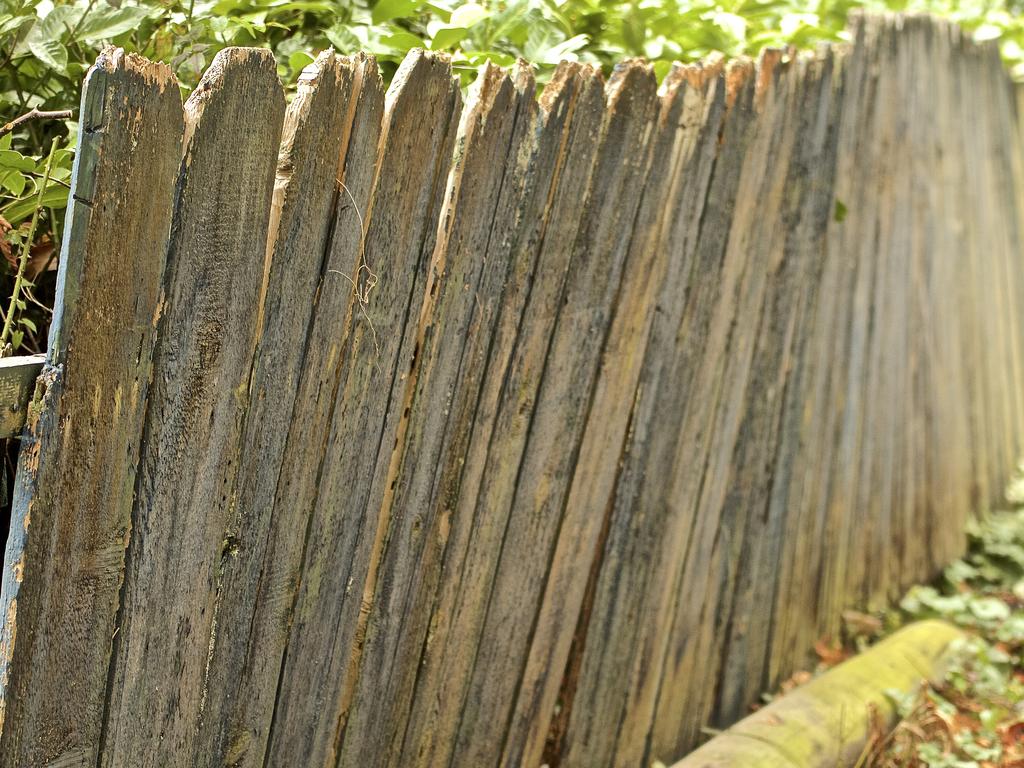Sisters In Law: Help, my new neighbour’s dog bit my child
The day after new people moved in next door to Rob, their dog burst through the fence and bit his son — but what happened next has left him stunned.

Welcome to Sisters In Law, news.com.au’s weekly column solving all of your legal problems. This week, our resident lawyers and real-life sisters Alison and Jillian Barrett from Maurice Blackburn tackle your legal rights when it comes to neighbourhood disputes about fences.
QUESTION: A new family has just moved into the house next door to me. The day they moved in and we noticed they had a dog, I went around to introduce myself and also ask if they wanted me to get some quotes to replace the battered and broken old fence, which was basically falling over and full of holes. They declined. The next morning, the dog broke the fence and bit my son on the arm — it’s a small dog, so it didn’t do too much damage but did break the skin. They were apologetic but are still refusing to get a new fence, saying they would try to mend the old one instead. It’s been weeks now and the holes are still there and we regularly see the dog in our yard. We no longer feel like we can let our three kids play outside. What are my legal rights when it comes to fences? Rob, QLD
ANSWER: Some of the most common neighbourhood disputes include disagreements about fencing and pets. Unfortunately, you seem to be facing a double whammy that is impacting your ability to enjoy your own backyard.
You have done the right thing by approaching your neighbour because any dispute is always best resolved when you can come to an agreement directly with them.
It does, however, sound like time to use the law to help find a resolution.
The law says that both owners of adjoining properties are equally responsible for the initial costs and the maintenance and repairs of the fences that divide their respective properties.
So in your case, even though your neighbours have only recently moved in, it should be a 50/50 split of the cost of the repairs, or a new fence, assuming the existing one can’t be repaired.
RELATED: Teen quizzed about bra in class
RELATED: Husband’s threats after cheating with neighbour
RELATED: Boss’s ‘creepy’ act before firing woman

Be aware that the law also says that if you want a fence that is not necessary for a “sufficient dividing fence” (e.g. you want it made from a gold-plated material and built well over head height, whereas repairs to the existing fence would be sufficient), you must pay the extra cost.
We note your neighbour has said they would do the repairs, however this hasn’t happened quickly enough to fix the issue, so you will need to take it further.
Like in most states, there are fencing dispute forms available on the Queensland Government website that you need to complete and provide to your neighbour.
This form (called a Notice to Contribute in Queensland) requires you to set out exactly what you want and how much it will cost (including a written quote).
With the dog constantly coming into your yard, it may classify as urgent fencing work, which requires a slightly different form and will be processed a lot quicker.
After you give this to your neighbour, they have one month to let you know if they agree or dispute the notice.
If it isn’t resolved, you can apply to the Queensland Civil and Administrative Tribunal (you don’t need a lawyer to do this).
The tribunal will hear the case, intervene and make a decision that is enforceable.
As you can see this process won’t fix things quickly for you, and in the meantime you have the neighbouring dog pestering your children.
You should again raise the issue with the dog directly with your neighbour and ask that they keep the dog inside or on a leash until the fence is repaired.
If your neighbour doesn’t act and the dog is still an issue, contact your local council’s animal management and make a complaint about the dog’s wandering behaviour.
Your neighbour must keep the dog under control at all times. This means in a fenced area or, if this is not available, inside or on a leash.

The council will usually issue a compliance notice as a first step.
If the dog continues to wander, the council also has the power to seize and impound the dog.
If the dog is placed in the pound, the owner will need to pay a fee for its release.
There are also other financial penalties that can be issued if the owner fails to comply that can be up to $5000, likely more expensive than half a fence.
We’d suggest you start keeping a diary of when the dog comes into your yard and take some photos as evidence that will assist the council.
Sounds like your son was lucky not to have any permanent damage from the dog bite.
Dog attacks are taken very seriously and your neighbour could be hit with huge fines (up to $30,000) and potential imprisonment depending on the seriousness.
On behalf of your son, you may be able to pursue compensation in a civil action against your neighbour for losses caused by any physical or psychological injuries sustained in the attack.
This legal information is general in nature and should not be regarded as specific legal advice or relied upon. Persons requiring particular legal advice should consult a solicitor.
If you have a legal question you would like Alison and Jillian to answer, please email stories@news.com.au.



